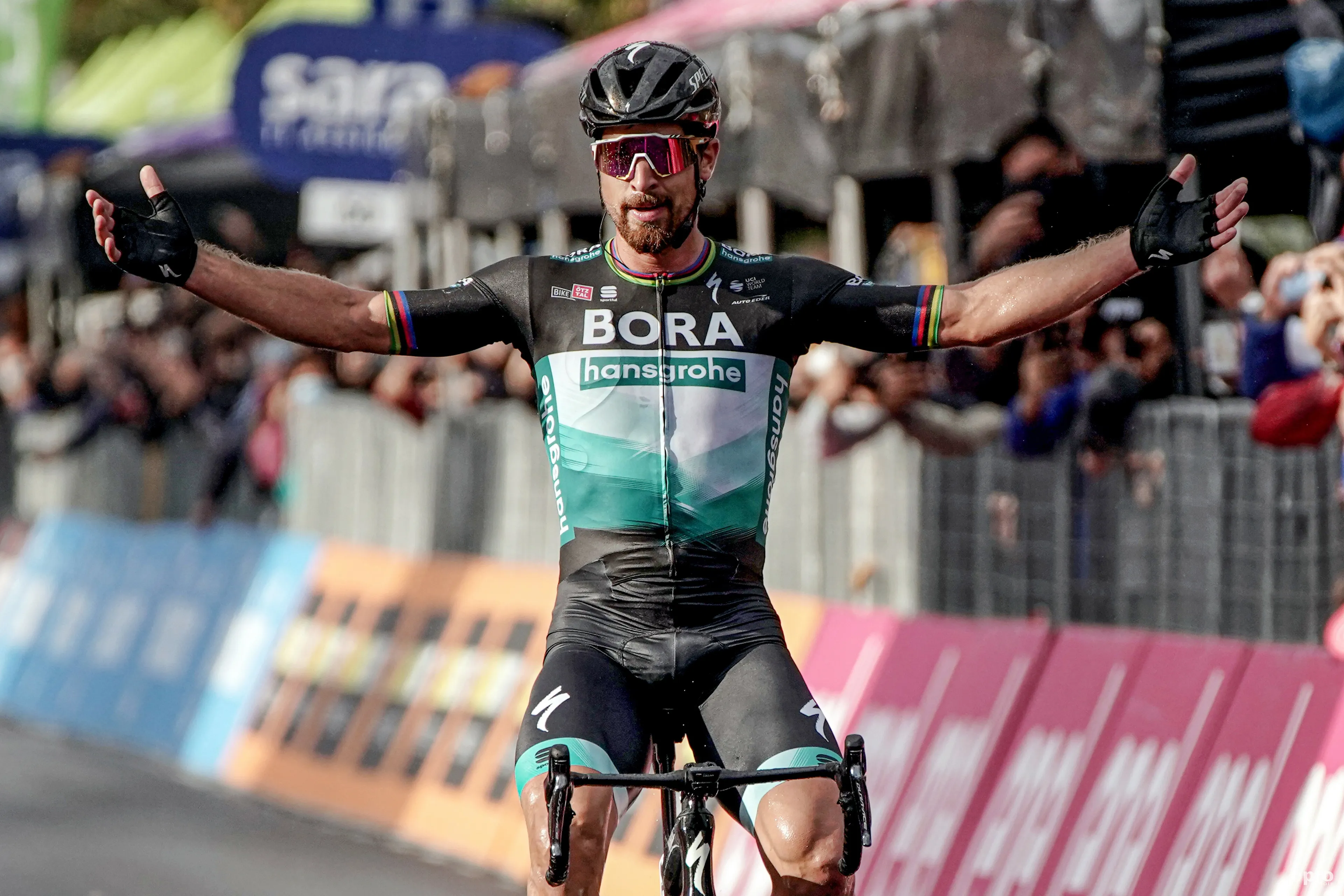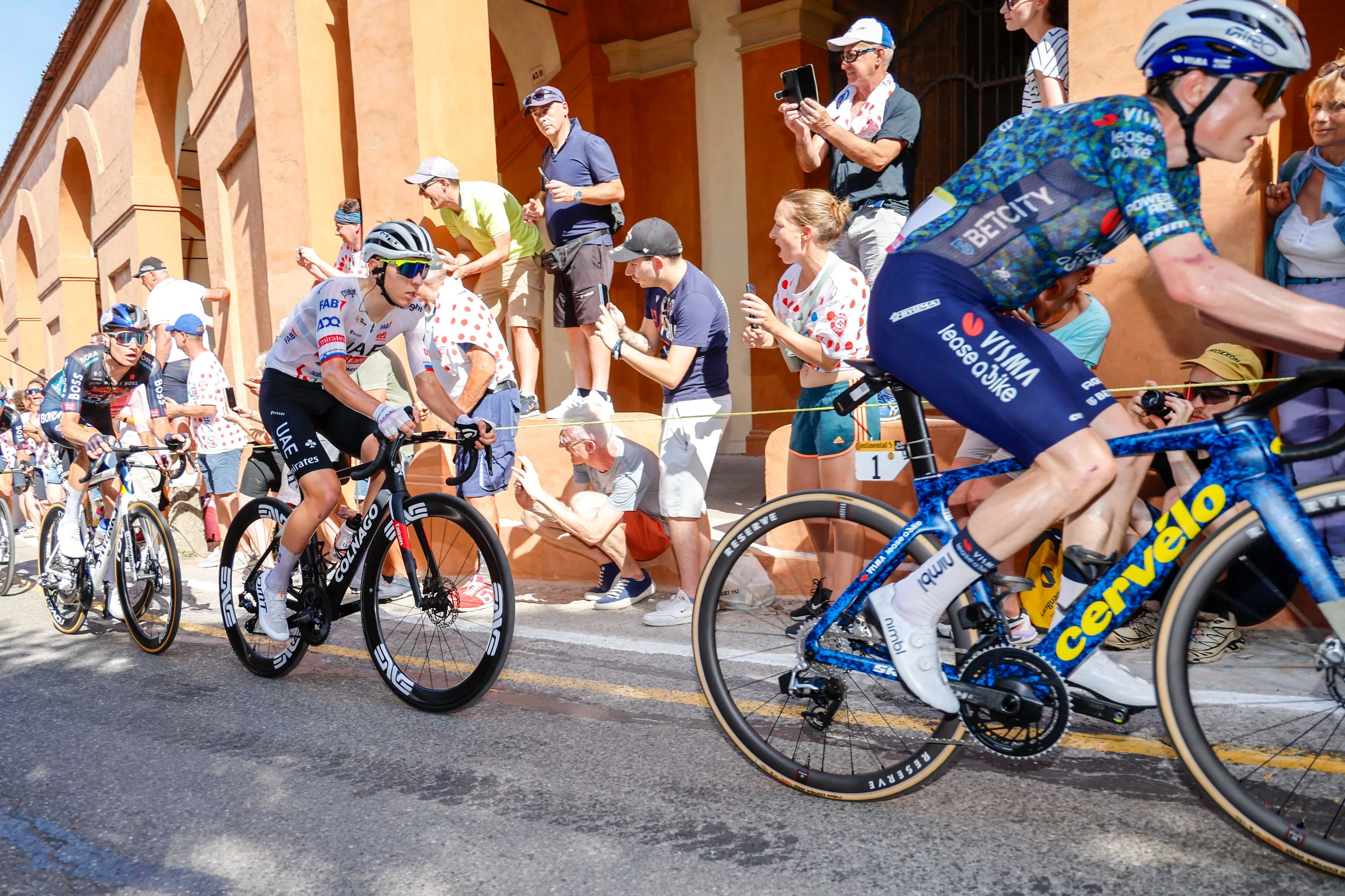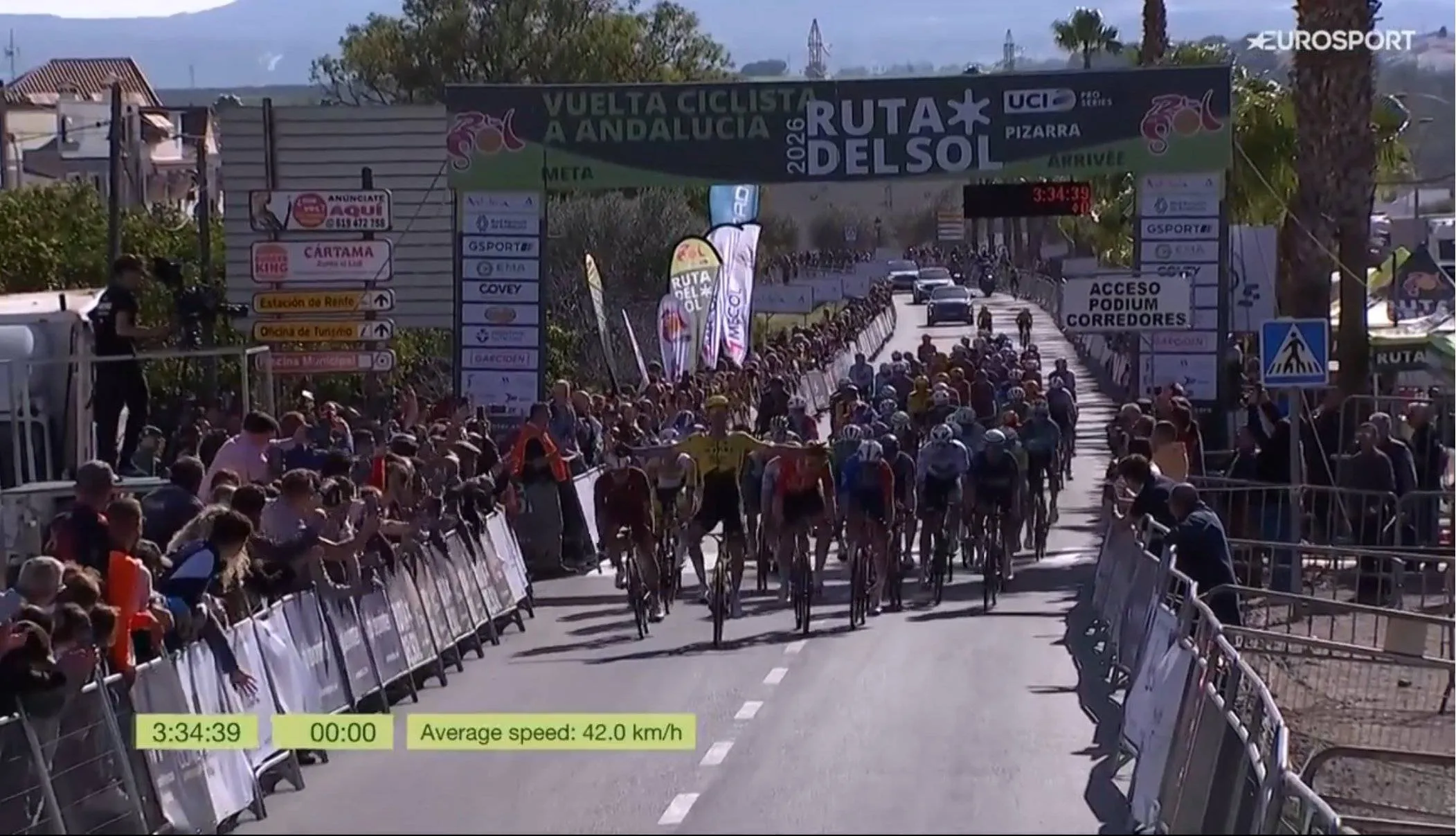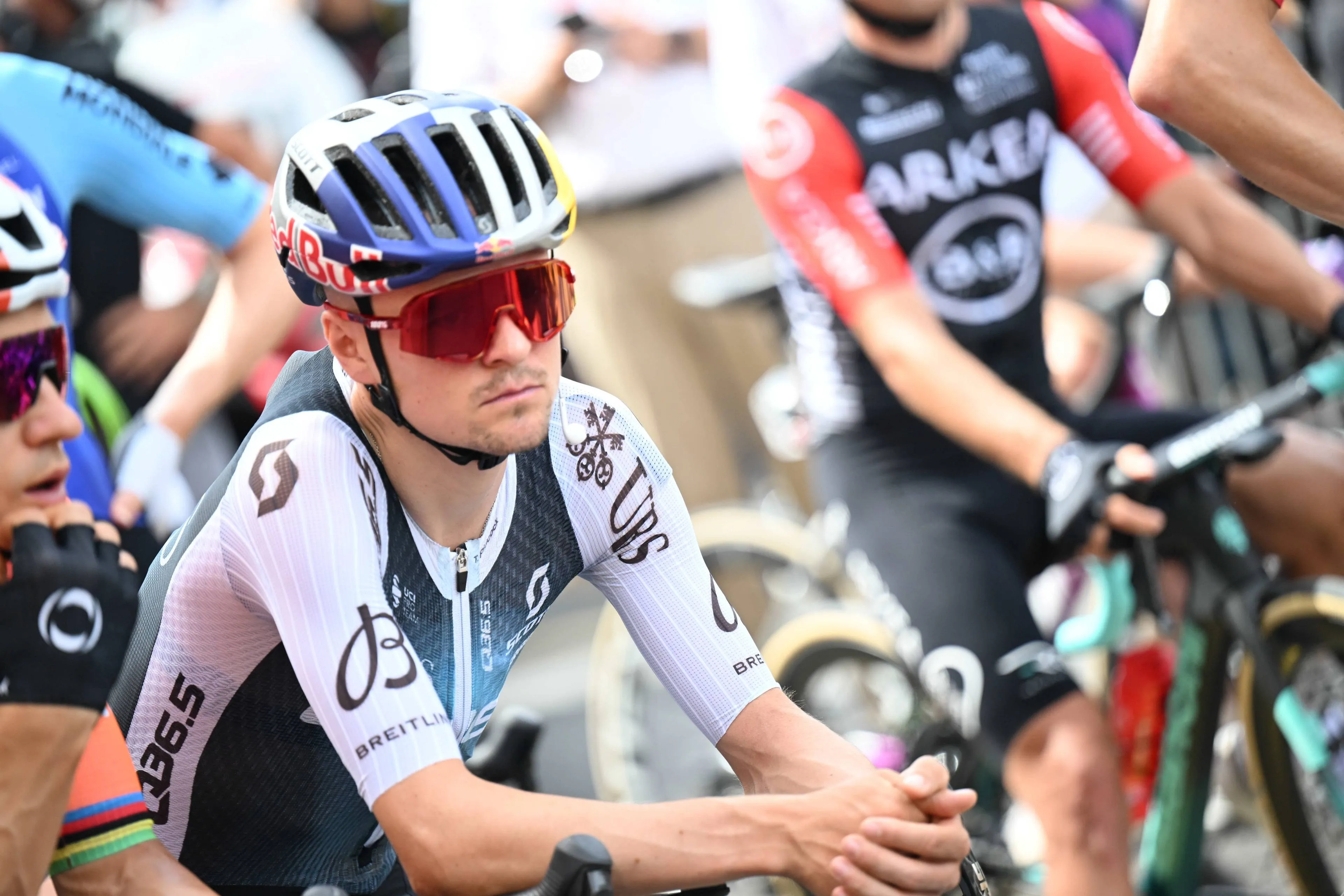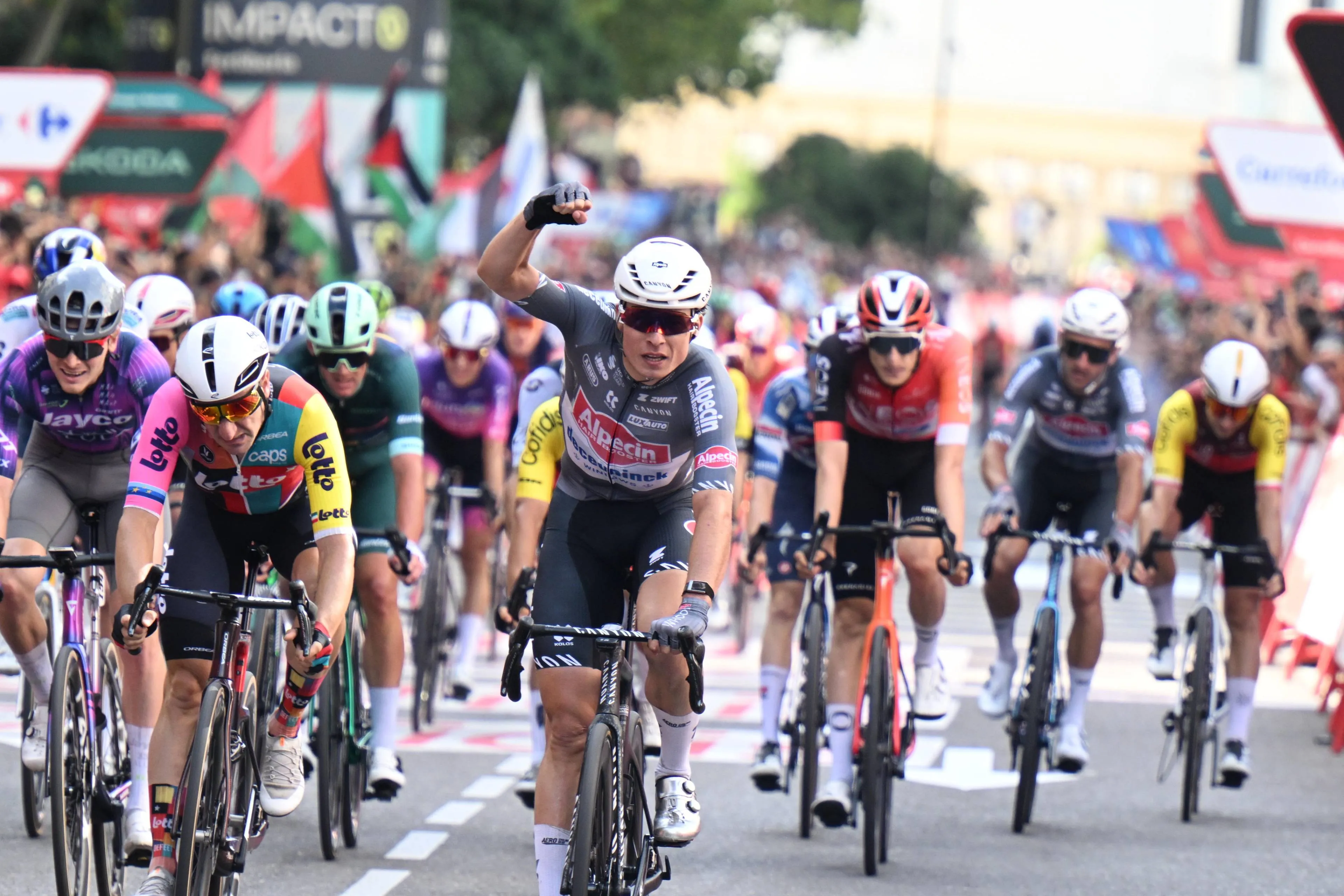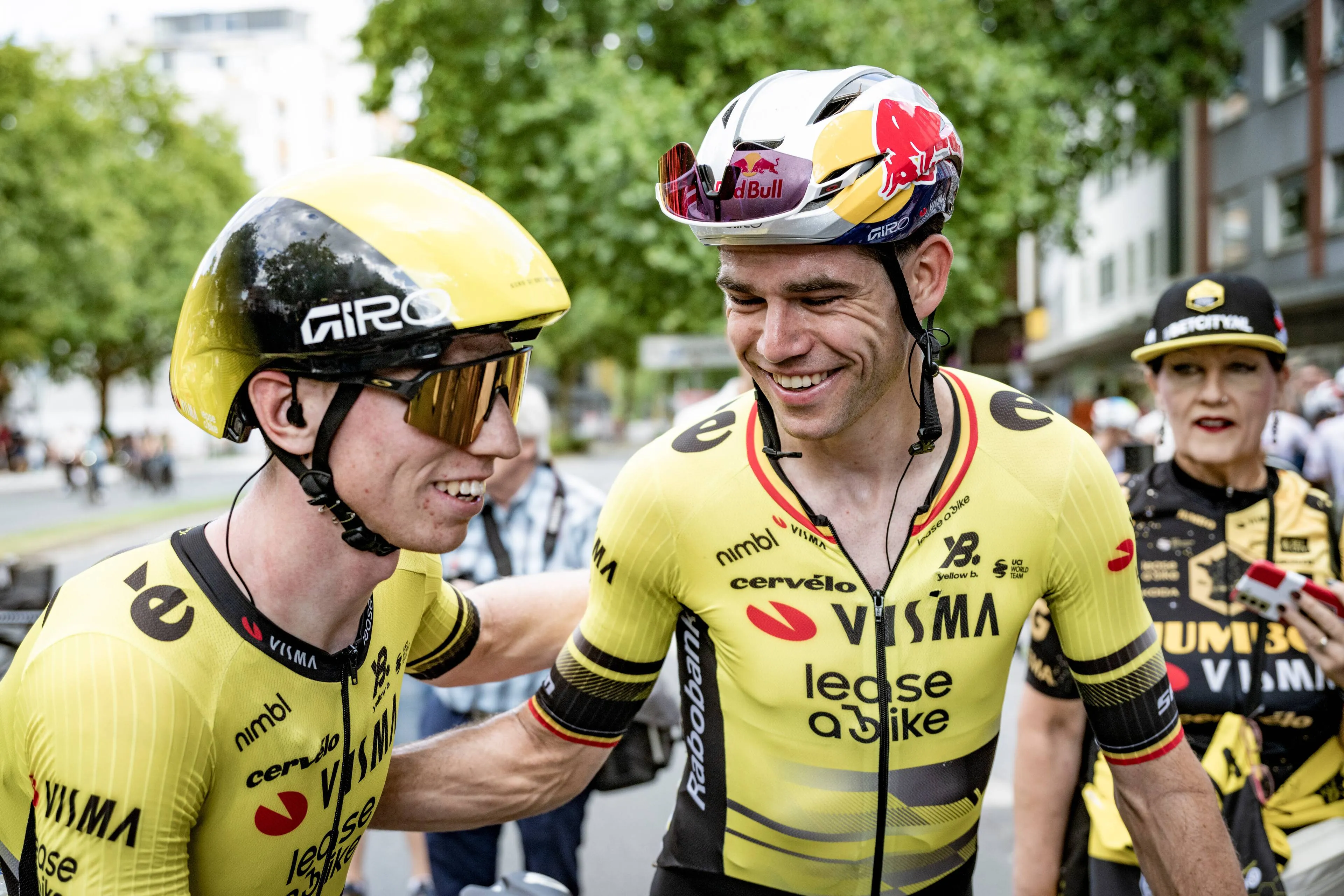"We are not all like Pogacar or Remco" - Two promising Soudal - Quick-Step talents quit cycling due to pressures
CyclingSaturday, 19 October 2024 at 09:23

In the modern day, cycling is more professional than it ever has been before. Because of this, the top riders are becoming younger and younger in age as they make their breakthrough. Sadly for two promising Soudal - Quick-Step youngsters however, the pressures of a potential professional cycling career have proven too much.
Gabriel Berg and Cormac Nisbet both looked set for promising careers in the professional peloton but rather that moving from Soudal - Quick-Step's Development Team to its pro side, the duo have sadly decided to end their respective cycling dreams. "I came to terms with the fact that the lifestyle I once dreamed of as a kid was no longer a future I wish to pursue - it didn’t bring me happiness," Nisbet said via a post on his official Instagram account. "As a result, I have decided to step away from racing at this level and subsequently have mutually agreed to step down from the Soudal - Quick-Step Devo team with immediate effect."
Read also
"For as long as I can remember I have had one major goal in life, to become a professional cyclist. No matter what has happened outside of that goal, cycling has given me the discipline, focus and separation to pursue that. It has rewarded me in ways I didn’t know possible and challenged me to blood, scars and tears," he continued. "Cycling is a rollercoaster and the highs are less frequent than the lows. However, every moment - good and bad - has made me a stronger and greater person. I owe it so much. I also owe an immeasurable amount of gratitude to some incredible mentors I have had. People who have guided me through the tough points, given me opportunities and belief when most didn’t."
In an extensive interview with L'Equipe meanwhile, Berg explained his own reasoning for premature cycling retirement. "I took the decision to stop cycling at the highest level and return to the cycling I loved, with fewer headaches, fewer constraints, and perhaps even more pleasure," Berg explained. "I love cycling, and turning professional was a dream of mine, but this year made me realise that it wasn’t necessarily for me due to lots of sacrifices, time away from my loved ones, repeated crashes, constant tension, little time to do anything else."
Despite never having reached the top level, Berg is already feeling the effects of the rigours and dangers of the sport. "My body is damaged and I have scars for life. Last July, during a race in Belgium, I had four falls in ten kilometres. I was a little scared," he reveals. "My age played a role in my decision to stop. At 18, I wasn't ready, it was too early. I didn't have the maturity to put everything aside for cycling. I didn't know how to turn my passion into a career. I felt trapped in a routine, cycling, cycling, cycling, all the time. Apart from cycling, I didn't see anyone. I no longer had a social life. When my friends suggested going on vacation or going for a hike, I refused. These little things accumulate."
"The development teams do not want to miss the next nugget, the future Pogacar, the future Evenepoel. So as soon as a junior gets results, they sign him, except that we are not all like Pogacar or Remco," Berg notes. "I don't regret my choices. It was a great experience. In two or three years, I might even try again. I'm still riding. I'm going to get an amateur licence again. And when I go training I still put on my Quick-Step jersey. I just want to tell young riders to make the most of their junior years, they're the best. And don't give up on your studies. You need something in case things go wrong, it's just a cycling career."
Read also
claps 15visitors 12
Just in
Popular news
Latest comments
- I just hope that he just says that he got cramps and that's it, rather than some long-winded excuse which makes him seem even more of a piece of...
 Rafionain-Glas18-02-2026
Rafionain-Glas18-02-2026 - finally, a team that does something smart. I could never understand why Ineos would like Egan train as he did alone. put a motorbike behind him with an earpiece to call out issues above. same with remco crashing into a postal truck.mij18-02-2026
- Wow, that is not a good sign for Remco. Great win for Tiberi!Pedalmasher18-02-2026
- Great champion Remco but his profile is more suitable for Ardennes-like races and tour with no very hard climbs. Not only Tadej and Vingegaard, there are a lot of younger cyclists (del Toro, Ayuso, maybe Seixas, Nordhagen and others) that will soon be big GC boys.
 maria2024202418-02-2026
maria2024202418-02-2026 - Evenopoel 1st real test, and he failedZamorano18-02-2026
- Remco is not the natural climber that riders like Tadej or Jonas are, no matter how much he trains and prepares for it. Yes, you can TT your way up moderately steep hills, but when the gradient gets super steep, he just can't keep up.
 santiagobenites18-02-2026
santiagobenites18-02-2026 - So against the better riders and a long mountain, Remco cracked. Sorry but way away from Pog and Jonasabstractengineer18-02-2026
- “I was portrayed as the devil" Bruyneel was really a talented team manager. His minor flaws: "coordinated, well-funded, and sophisticated doping regime" "hand-in-hand in implementing the team-wide doping programme" "was involved in trafficking and administering prohibited substances and methods, including EPO, blood transfusions, testosterone, human growth hormone, and cortisone. Teammates testified that nothing significant happened without Bruyneel's knowledge and approval." "fostered an environment where doping was considered a "fact of life" and necessary for success, effectively making it a condition of survival on the team. He also participated in or assisted with the cover-up of positive tests and doping violations." Those quotes show Bruyneel's true talent.Cyclingnut18-02-2026
- Fed up hearing "their" voicesslappers6618-02-2026
- When you join Ineos , learning , time , no pressure go out of the windowabstractengineer18-02-2026
Loading
Write a comment
